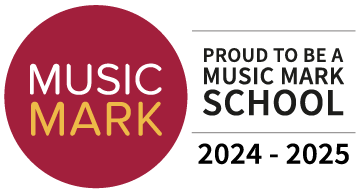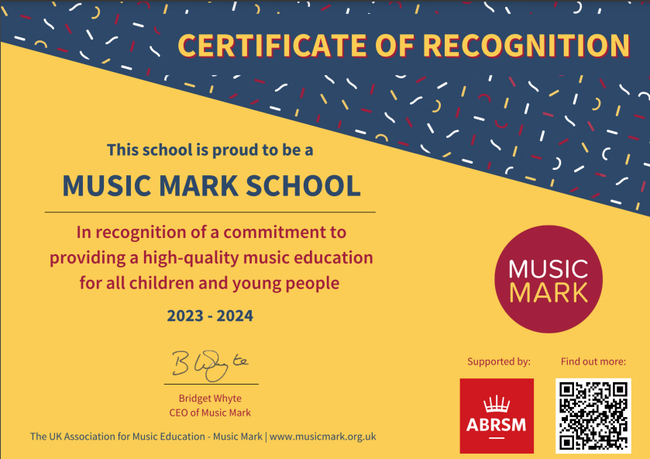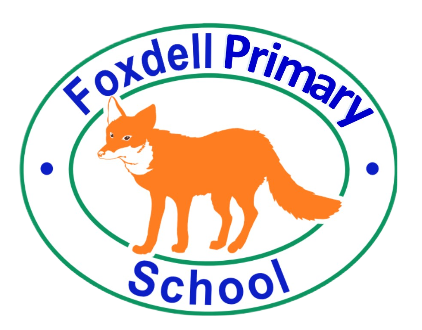Music

'Music is a universal language that embodies one of the highest forms of creativity. A high quality music education should engage and inspire pupils to develop a love of music and their talent as musicians, and so increase their self-confidence, creativity and sense of achievement. As pupils progress, they should develop a critical engagement with music, allowing them to compose, and to listen with discrimination to the best in the musical canon.' (National Curriculum 2014)
At Foxdell Primary School, we believe that music is a powerful and unique art form that can influence the way pupils feel, think and act. It affects creativity and aesthetic development and can develop sensitivity in children and can illustrate the fulfilment to be found in creative expression. Pupils are exposed to a wide range of musical styles and experience making compositions of their own.
From an early age children have an awareness of rhythm, pitch and sounds around them and these should be developed on entry to school. Music reflects culture and society, and opportunity is provided for a range of culturally and historically diverse musical experiences which help build understanding of the context of music making, both in the past and present; likewise in different places.
The national curriculum states that Key Stage 1 Pupils should be taught to:
- Use their voices expressively and creatively by singing songs and speaking chants and rhymes
- Play tuned and untuned instruments musically
- Listen with concentration and understanding to a range of high-quality live and recorded music
- Experiment with, create, select and combine sounds using the inter-related dimensions of music.
The national curriculum states that Key Stage 2 pupils should be taught to:
- play and perform in solo and ensemble contexts, using their voices and playing musical instruments with increasing accuracy, fluency, control and expression
- improvise and compose music for a range of purposes using the inter-related dimensions of music
- listen with attention to detail and recall sounds with increasing aural memory
- use and understand staff and other musical notations
- appreciate and understand a wide range of high-quality live and recorded music drawn from different traditions and from great composers and musicians
- develop an understanding of the history of music.
This year, we are working with the Luton Music Service to provide enhanced music provision for all of our children which is delivered by music specialist teachers. Every class has a timetabled lesson once per week. In addition, children from Year 1 to Year 6 attend a weekly singing assembly. We also offer a Choir Club to children in Year 5 and Year 6.
Luton Music Service (LMS) Curriculum Intent
Our progressive scheme covers the National Curriculum in an integrated, practical and exploratory way. We have designed a curriculum that builds pupils’ technical, constructive and expressive knowledge of music. The interrelated dimensions of music weave through both key stages to encourage the development of musical skills as the learning progresses, through listening and appraising, differing musical activities (including creating and exploring) and performing. Our intention is to incrementally build the knowledge that pupils need to become musicians and to have an appreciation for music.

